第11章 Anne Boleyn (10)
Will Sommers was a great favourite with the king, and ventured upon familiarities which no one else dared to use with him.The favour in which he stood with his royal master procured him admittance to his presence at all hours and at all seasons, and his influence, though seldom exerted, was very great.He was especially serviceable in turning aside the edge of the king's displeasure, and more frequently exerted himself to allay the storm than to raise it.His principal hostility was directed against Wolsey, whose arrogance and grasping practices were the constant subjects of his railing.It was seldom, such was his privileged character, and the protection he enjoyed from the sovereign, that any of the courtiers resented his remarks; but Sir Thomas Wyat's feelings being now deeply interested, he turned sharply round, and said, "How now, thou meddling varlet, what business hast thou to interfere?""I interfere to prove my authority, gossip Wyat," replied Sommers, " and to show that, varlet as I am, I am as powerful as Mistress Anne Boleyn--nay, that I am yet more powerful, because I am obeyed, while she is not.""Were I at liberty," said Sir Thomas angrily, "I would make thee repent thine insolence.""But thou art not at liberty, good gossip," replied the jester, screaming with laughter; " thou art tied like a slave to the oar, and cannot free thyself from it--ha! ha!" Having enjoyed the knight's discomposure for a few seconds, he advanced towards him, and whispered in his ear, "Don't mistake me, gossip.I have done thee good service in preventing thee from taking that kerchief.Hadst thou received it in the presence of these witnesses, thou wouldst have been lodged in the Round Tower of Windsor Castle to-morrow, instead of feasting with the knights-companions in Saint George's Hall."
"I believe thou art right, gossip,"said Wyat in the same tone.
Rest assured I am," replied Sommers; "and I further more counsel thee to decline this dangerous gift altogether, and to think no more of the fair profferer, or if thou must think of her, let it be as of one beyond thy reach.Cross not the lion's path; take a friendly hint from the jackal."And without waiting for a reply, he darted away, and mingled with the cavalcade in the rear.
Immediately behind Anne Boleyn's litter rode a company of henchmen of the royal household, armed with gilt partisans.Next succeeded a chariot covered with red cloth of gold, and drawn by four horses richly caparisoned, containing the old Duchess of Norfolk and the old Marchioness of Dorset.Then came the king's natural son, the Duke of Richmond--a young man formed on the same large scale, and distinguished by the same haughty port, and the same bluff manner, as his royal sire.The duke's mother was the Lady Talboys, esteemed one of the most beautiful women of the age, and who had for a long time held the capricious monarch captive.Henry was warmly attached to his son, showered favours without number upon him, and might have done yet more if fate had not snatched him away at an early age.
Though scarcely eighteen, the Duke of Richmond looked more than twenty, and his lips and chin were clothed with a well-grown though closely-clipped beard.He was magnificently habited in a doublet of cloth of gold of bawdekin, the placard and sleeves of which were wrought with flat gold, and fastened with aiglets.A girdle of crimson velvet, enriched with precious stones, encircled his waist, and sustained a poniard and a Toledo sword, damascened with gold.Over all he wore a loose robe, or housse, of scarlet mohair, trimmed with minever, and was further decorated with the collar of the Order of the Garter.His cap was of white velvet, ornamented with emeralds, and from the side depended a small azure plume.He rode a magnificent black charger, trapped in housings of cloth of gold, powdered with ermine.
By the duke's side rode the Earl of Surrey attired--as upon the previous day, and mounted on a fiery Arabian, trapped in crimson velvet fringed with Venetian gold.Both nobles were attended by their esquires in their liveries.
Behind them came a chariot covered with cloth of silver, and drawn, like the first, by four horses in rich housings, containing two very beautiful damsels, one of whom attracted so much of the attention of the youthful nobles, that it was with difficulty they could preserve due order of march.The young dame in question was about seventeen; her face was oval in form, with features of the utmost delicacy and regularity.Her complexion was fair and pale, and contrasted strikingly with her jetty brows and magnificent black eyes, of oriental size, tenderness, and lustre.Her dark and luxuriant tresses were confined by a cap of black velvet faced with white satin, and ornamented with pearls.Her gown was of white satin worked with gold, and had long open pendent sleeves, while from her slender and marble neck hung a cordeliere--a species of necklace imitated from the cord worn by Franciscan friars, and formed of crimson silk twisted with threads of Venetian gold..
This fair creature was the Lady Elizabeth Fitzgerald, daughter of Gerald Fitzgerald, ninth Earl of Kildare, who claimed descent from the Geraldi family of Florence; but she was generally known by the appellation of the Fair Geraldine--a title bestowed upon her, on account of her beauty, by the king, and by which she still lives, and will continue to live, as long as poetry endures, in the deathless and enchanting strains of her lover, the Earl of Surrey.At the instance of her mother, Lady Kildare, the Fair Geraldine was brought up with the Princess Mary, afterwards Queen of England; but she had been lately assigned by the royal order as one of the attendants--a post equivalent to that of maid of honour--to Anne Boleyn.